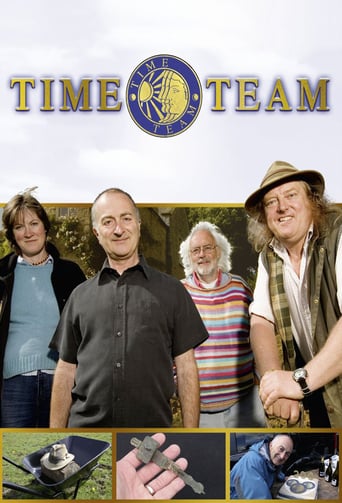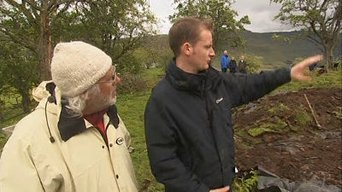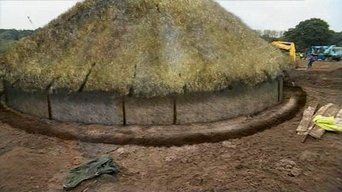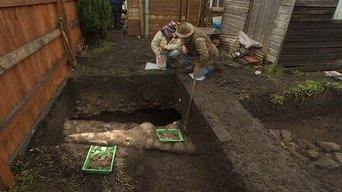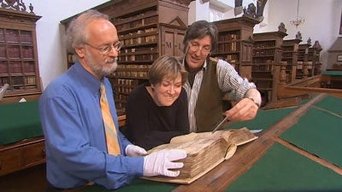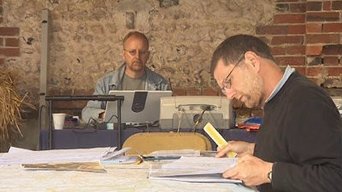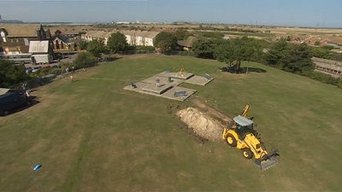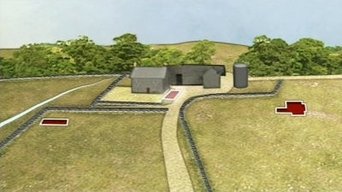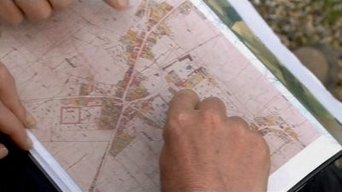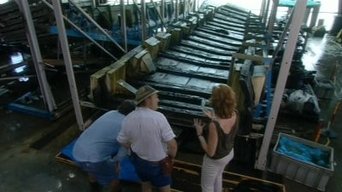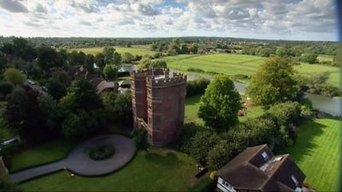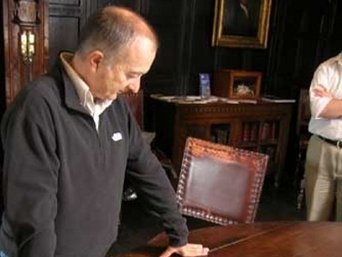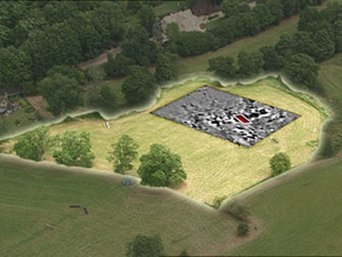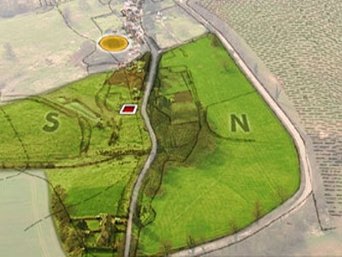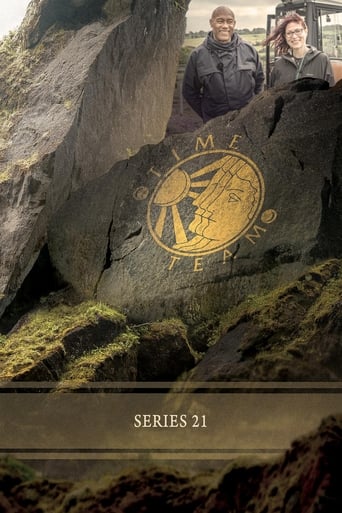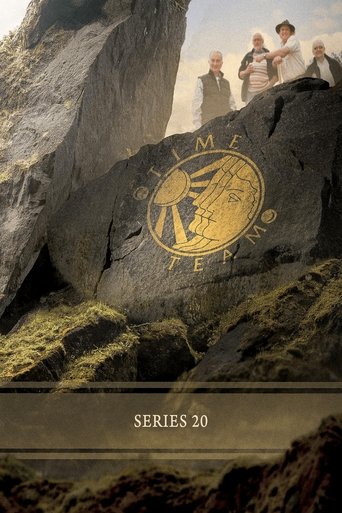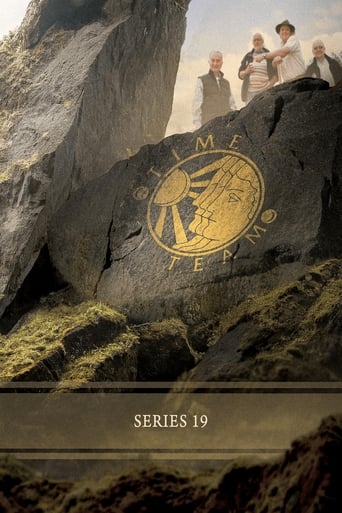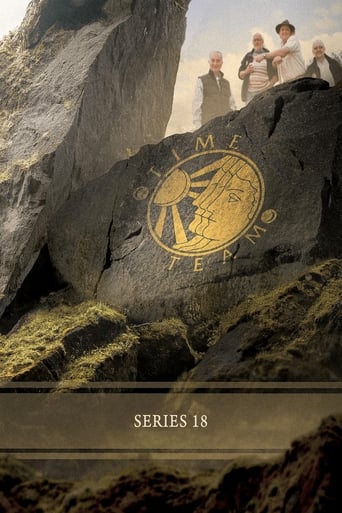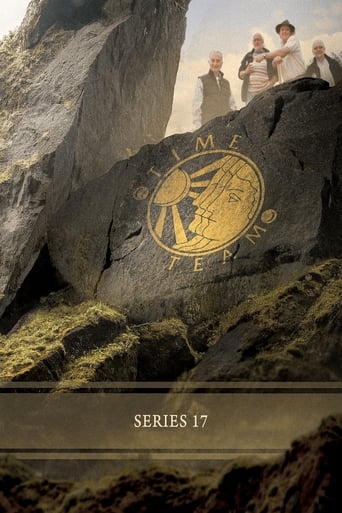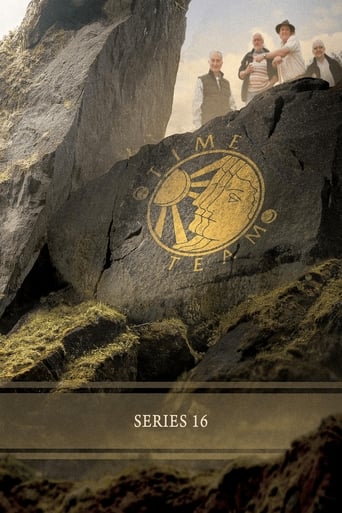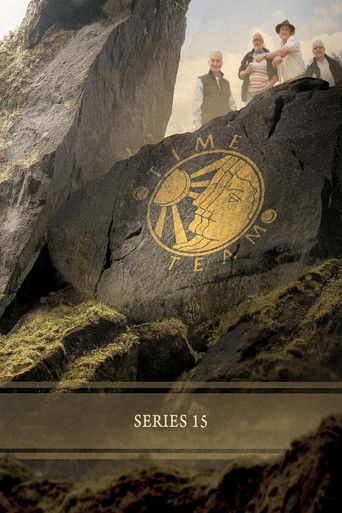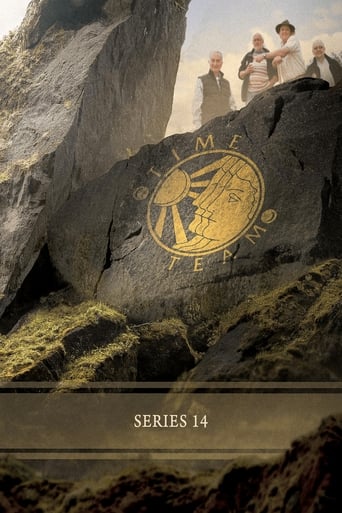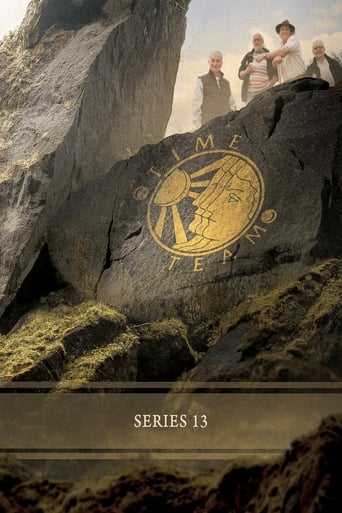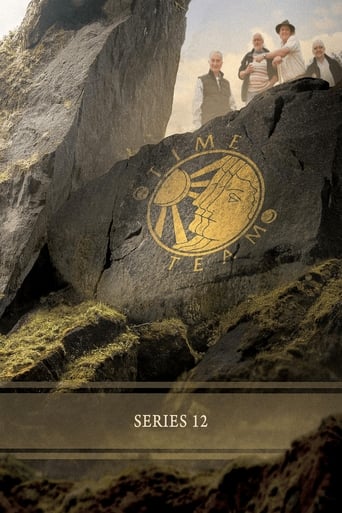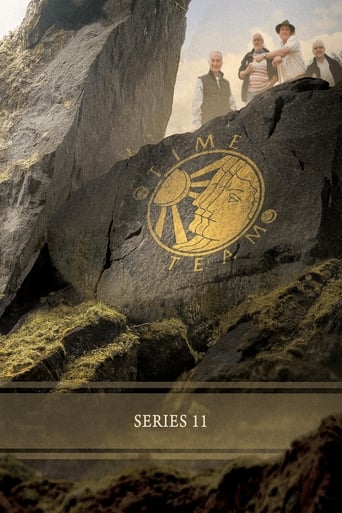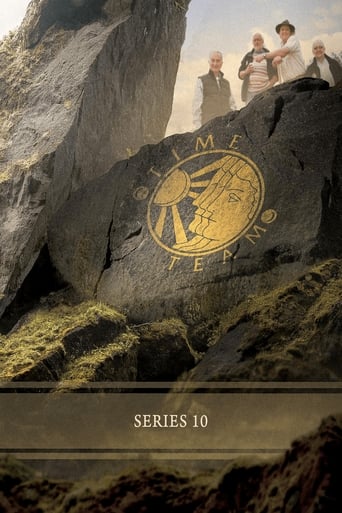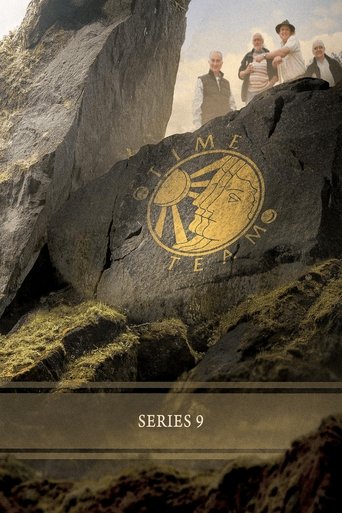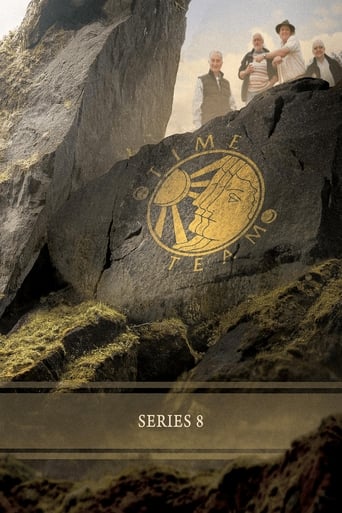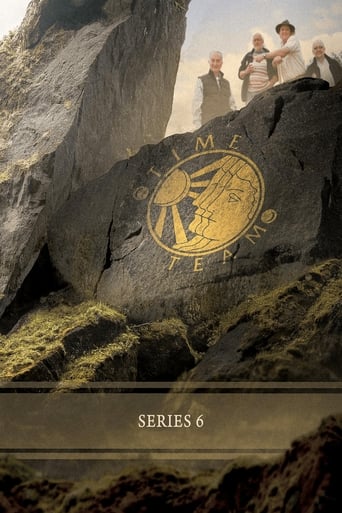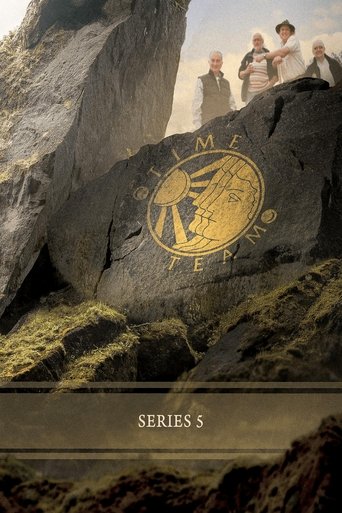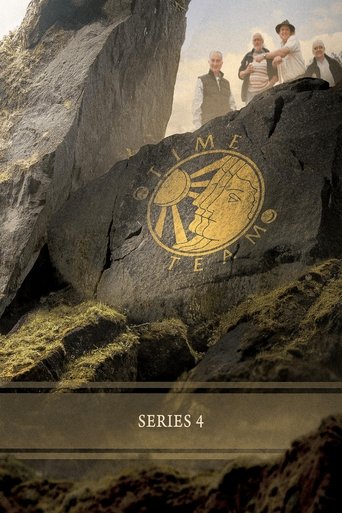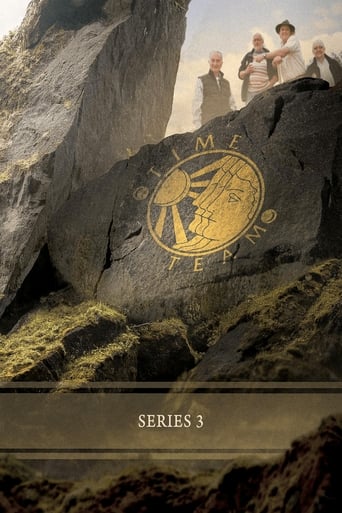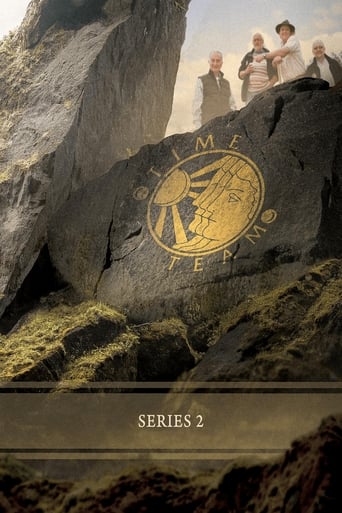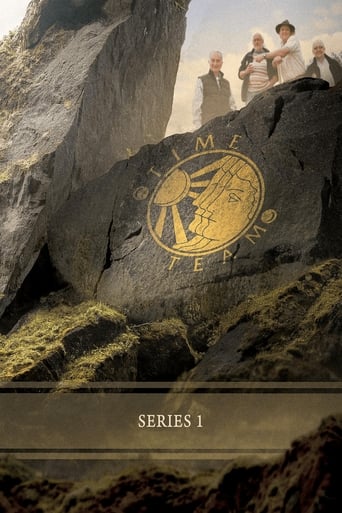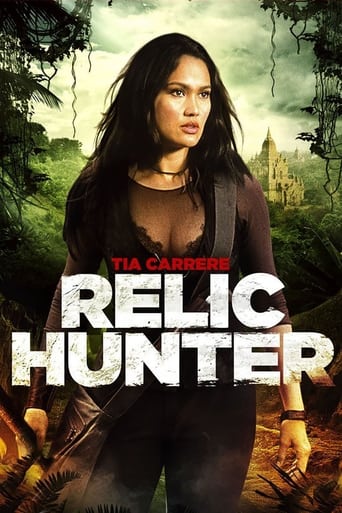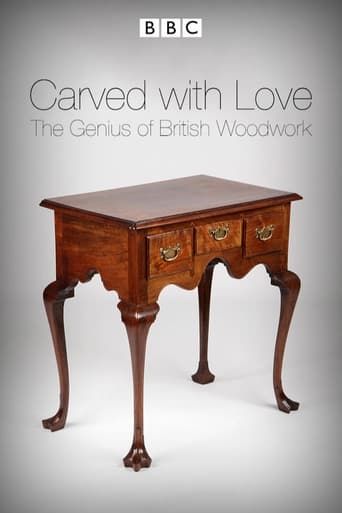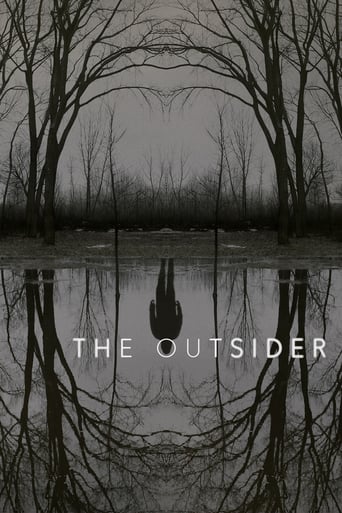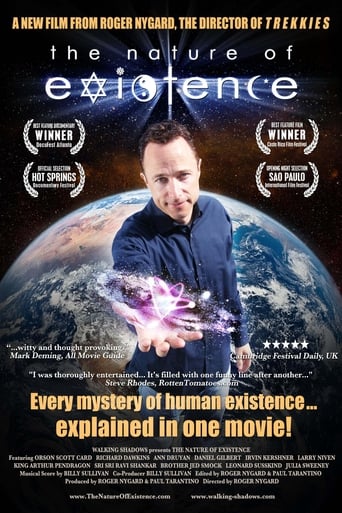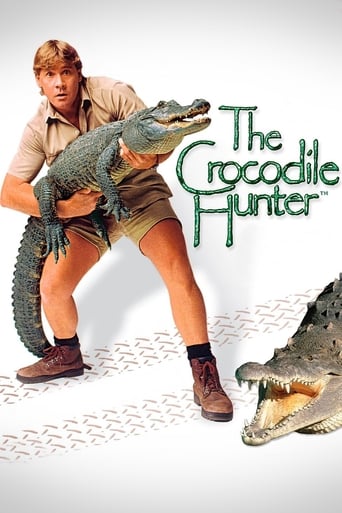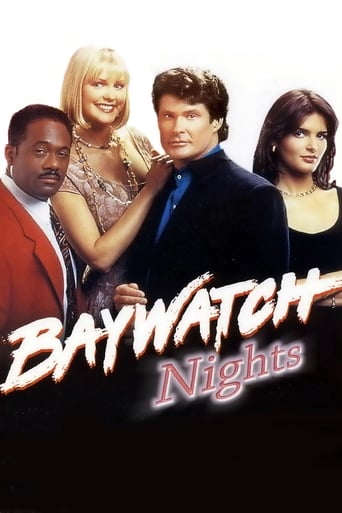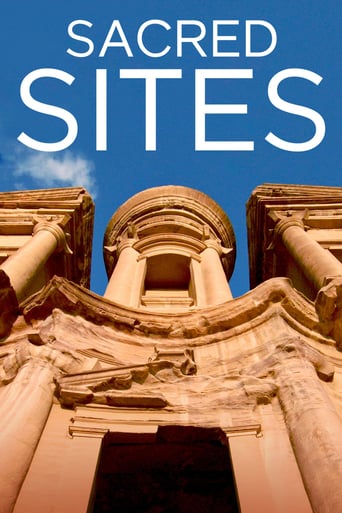Time Team Season 13
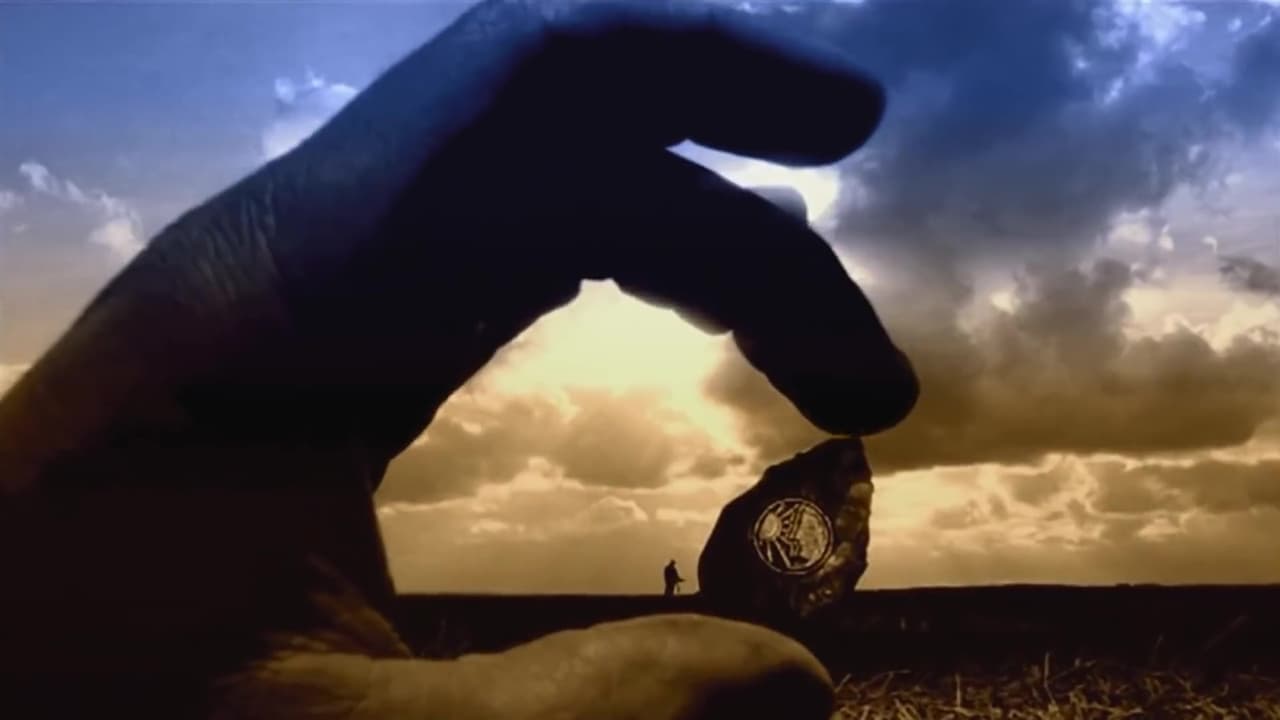
Time Team is a British television series which has been aired on British Channel 4 from 1994. Created by television producer Tim Taylor and presented by actor Tony Robinson, each episode featured a team of specialists carrying out an archaeological dig over a period of three days, with Robinson explaining the process in layman's terms. This team of specialists changed throughout the series' run, although has consistently included professional archaeologists such as Mick Aston, Carenza Lewis, Francis Pryor and Phil Harding. The sites excavated over the show's run have ranged in date from the Palaeolithic right through to the Second World War.
Watch NowWith 30 Day Free Trial!
Time Team
1994



Time Team is a British television series which has been aired on British Channel 4 from 1994. Created by television producer Tim Taylor and presented by actor Tony Robinson, each episode featured a team of specialists carrying out an archaeological dig over a period of three days, with Robinson explaining the process in layman's terms. This team of specialists changed throughout the series' run, although has consistently included professional archaeologists such as Mick Aston, Carenza Lewis, Francis Pryor and Phil Harding. The sites excavated over the show's run have ranged in date from the Palaeolithic right through to the Second World War.
Watch Trailer
With 30 Day Free Trial!
Time Team Season 13 Full Episode Guide
Tony and the team journey to Applecross in the north west of Scotland to excavate a broch, a monumental dry-stone tower that was one of the largest Iron Age structures in Britain. But they are hampered by stony soil and a massive overhead power line. They are joined by Scottish Iron Age specialists Ian Armit, Andy Heald, Cathy Dagg, Noel Fojut.
Time Team travel to Alfoldean in West Sussex to uncover a Roman mansio or stopping-place, and hence the story of the whole settlement. The dig takes place in ploughed fields on both sides of the A29, or what the Romans knew as Stane Street. But atrocious weather and the sheer scale of the site push the team's resources to the limits. They are joined by Roman Sussex specialist Miles Russell and archaeologist Mike Luke. Phil gets a new hat. They are visited by pupils from the nearby Christ's Hospital School. Farrier Cliff Barnes uses the school forge to make hipposandals - precursors of the modern horseshoe.
The team descend on the village of Ffrith in North Wales to discover if it is built on the remains of a Roman mining town. The main street runs along the route of Offa's Dyke. The dig involves excavating two gardens and the playing field, but the team are frustrated in their attempts to find a Roman bath house. The team are joined by archaeologist Chris Martin and historian David Mason.
The team descends upon the sleepy Oxfordshire village of Islip, the birthplace of Edward the Confessor, for one of the most challenging and intriguing excavations of the series. They are joined by architectural historians Sam Newton and Jonathan Foyle. Helen and Sam visit Westminster Abbey to view original documents relating Edward to Islip.
The team travels to what could be a Neolithic settlement in the Sussex Downs. Initially discovered by John Pull in 1923, the site is littered with remains of 6000-year-old flint mines. But Pull claimed to have discovered a second site nearby, which has so far eluded other diggers. The team are joined by archaeologist Miles Russell, pottery expert Sue Hamilton and wood specialist Maisie Taylor. Neolithic lifestyle specialist Jacqui Wood makes some elderflower tea and threatens to make a new hat for Phil. Phil and Francis demonstrate the relative merits of mesolithic and neolithic axes.
The team investigate the remains of Queenborough Castle on the Isle of Sheppey, built by Edward III for Queen Philippa during the Hundred Years' War. The Time Team excavate the castle mound, and opinion is divided whether this unique circular structure was built for defence or as a royal bolthole from the plague. They are joined by archaeologist Oliver Creighton, medieval historian Sam Newton and architectural historian Jonathan Foyle.
The team travels to the Yorkshire Dales to meet Chris and Barbara Bradley on their farm to uncover the remains of a monastic grange - a medieval forerunner to the grand country house, with connections to nearby Fountains Abbey. Kerry Ely is the site supervisor, and the team are joined by Jonathan Clarke (buildings archaeologist) and Mark Newman from the National Trust. Matt is "volunteered" to lead the tough life of a medieval lay brother for 24 hours.
The team descends on the orchards of Kent to search for the lost Anglo-Saxon palace of Eastry, and discover two likely contenders. Over three days, they dig the longest trench in Time Team history.
The team is invited by Dutch archaeologists to help rescue crucial evidence from a 35-metre-long barge that once sailed the Rhine. The team has one chance to investigate the boat before the bulldozers move in.They are joined by city archaeologists Erik Graafstal and Herre Wynia, Fleur Kemmers (coin specialist) and Jaap Morel (ship archaeologist). Together with wood specialists Damian Goodburn and Esther Jansma, Phil looks at a similar barge which has been preserved and exhibited.
The team visit Wayneflete Tower which is all that remains of a palace. Over three days they piece together the story of a site that evolved into one of the most stunning buildings of early Tudor times. They are joined by historic buildings expert Jonathan Foyle, John Guy (historian) and dendrochronologist Mick Worthington.
The team set to work uncovering Manchester's first cotton mill, built by one of the fathers of the Industrial Revolution, Richard Arkwright. Over three days the team uncover the remains of a complex factory and also signs of a revolutionary steam engine that was decades ahead of its time. The team are joined by Mike Nevell from Manchester University, and Jennifer Tann (technology historian).
When a colony of moles brings up pieces of mosaic floor in a Cotswold field, Tony Robinson and the team investigate whether the findings could be linked to a nearby Roman villa discovered almost 200 years ago. A local spring might give a clue to the true purpose of the building. The team are joined by local archaeologist Roger Box, and Roman specialists David Neal and Richard Reece.
The Team is visiting Glendon Hall to unravel the mystery of the human skeletons found under an outbuilding. The team are joined by Richard Morriss (historic building consultant) and Glenn Foard (landscape archaeologist).
Free Trial Channels
Seasons


